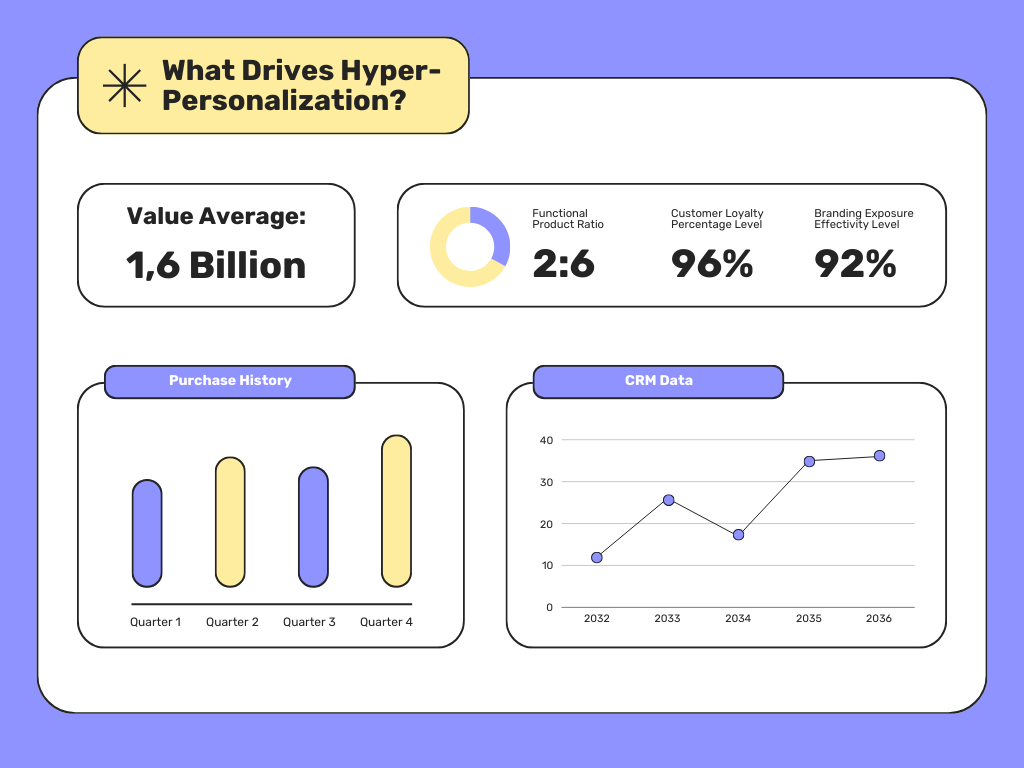
Personalized Shopping Experiences with AI - How E-Commerce Is Evolving in 2025
Himanshu Tiwari
March 21, 2025
In the age of hyper-personalization, generic shopping experiences are no longer enough. AI-powered tools are transforming how retailers connect with customers, offering tailored journeys that increase engagement, loyalty, and conversions.
This shift toward personalized shopping is not just a trend. It’s becoming a competitive necessity in e-commerce.
1. What Is Hyper-Personalization in Retail?
Hyper-personalization goes beyond using a customer’s name in an email. It uses real-time behavioral data, past purchases, and predictive analytics to curate product suggestions, marketing messages, and even dynamic website layouts tailored to each individual shopper.

2. Why Personalization Matters in 2025
Research shows that customers are significantly more likely to buy from brands that offer personalized experiences. In today’s saturated market, the key differentiator isn’t price or inventory; it’s how well a brand understands and serves each user.
Here’s where AI makes that possible:
- Smart Product Recommendations
Machine learning models analyze browsing patterns and past purchases to suggest products customers are more likely to buy. This increases average order value and reduces bounce rates. - Real-Time Content Customization
AI adapts banners, headlines, and offers in real-time based on a shopper’s profile and intent, creating a more relevant and engaging on-site experience. - Predictive Marketing Triggers
AI identifies when a customer is likely to churn or ready to purchase again and delivers the right message at the right time — via email, push, or WhatsApp.
3. Real-World Results: AI in Action
weya helps e-commerce brands create AI-powered, human-like experiences that connect with customers across platforms. One fashion retailer used weya’s multilingual voice AI to re-engage users who abandoned carts. The result: a 22% lift in recovered sales.
By syncing web data with voice conversations, the retailer created seamless follow-ups through WhatsApp, continuing the experience from where the shopper left off.
"Our customers often said it felt like they were speaking to a real store assistant, not a bot.”
4. The Role of Omnichannel AI in Personalization
Personalization isn’t limited to websites. With weya’s memory layer, a customer can browse on mobile, ask a question through a voice call, and receive a personalized message on WhatsApp — all without repeating their intent.
This unified experience keeps engagement high and builds brand trust across touchpoints.

5. How to Get Started
To compete effectively in 2025, e-commerce brands should:
- Audit existing data to identify gaps in personalization.
- Implement AI tools for recommendations, segmentation, and conversational automation.
- Continuously test and refine personalized flows based on real customer behavior.
6. Final Thoughts
In 2025, personalized shopping is no longer optional — it’s expected. AI empowers retailers to deliver intuitive, timely, and relevant experiences that win loyalty and drive sales.
Looking to personalize your customer journey from web to Voice call to WhatsApp?
Schedule a demo with weya and see how our voice and chat automation makes it happen.